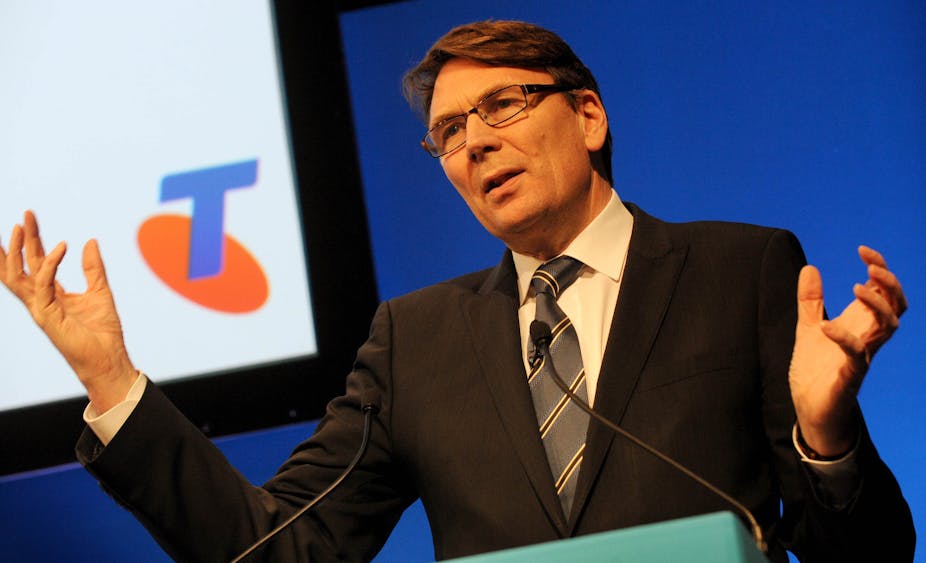Telstra shareholders have agreed to an $11 billion deal today that will hand over the telco’s fixed line network to NBN Co.
Under the deal, Telstra will decommission its copper line network as customers swap over to the NBN Co fibre optic network, allowing NBN to access its infrastructure.
However, the Australian Competition and Consumer Commission (ACCC) has already signalled it is not happy with aspects of the deal.
Ken Wiltshire, Professor of Public Administration at the University of Queensland explains why the vote is a bad move.
What does the vote by Telstra shareholders today mean?
It means we now have one great big monopoly, a combination of Telstra with the NBN and this is going to squeeze out a lot of the other operators. So we’ve now got a government sponsored monopoly. The whole thing is a disgrace.
The government shouldn’t have funded the NBN in the first place - private enterprise would have funded it. The government has manipulated all the regulatory and funding arrangements to make sure their precious NBN remains viable, but they’ve reduced the amount of competition, prices are going to go up and we’re going to saddled with this great big white elephant.
Telstra is going to do well out of the deal initially as they have negotiated a good financial arrangement from the government - shareholders have voted in their own pecuniary interest and taken no notice whatsoever of the public interest for Australia.
It should be owned by private enterprise. There was never any need for the government to engage in this. Everybody wants fast broadband but the problem is the way it has been done. I am concerned that because people are keen on fast broadband they will forget about the cost to the taxpayers and the long-term consequences.
I would be very surprised if the ACCC doesn’t become involved and possibly even block this transaction because it is a very anti-competitive arrangement.
What action do you think the ACCC should take?
I think the ACCC will lay down strict rules around the prices Telstra and the NBN can charge other operators for use of the fibre optic network. They’ll also make sure the consumers have better rights.
At the moment we have a very uneven arrangement across Australia - some states want people to opt in to the fibre optic network, others want to opt out. I think people are going to get very grumpy if they are compelled to switch from the copper network to the fibre optic network when they really haven’t had a vote on this.
I think there is gong to be an enormous consumer backlash. It’s one of the worst public policy decisions we’ve ever seen in this country.
So what is the longer term future for Telstra then?
The details of this deal haven’t been publicly released yet, not even federal parliament is completely familiar with what has happened. So a lot of it depends on the financial incentives that were given to Telstra to do this.
In the short term, it’s attractive to Telstra, but in the long run, we can’t be sure because the government is determined to protect the NBN, which is already looks like being uneconomic.
The studies are showing there isn’t the take-up it says there would be and it is not going deliver properly to regional areas. The whole thing is looking like a white elephant.
It depends to a large extent how much Telstra will be protected from what I believe will be the long term negative consequences of the NBN.
Telstra and NBN combined will control the whole fibre-optic network and they’ll also control the access regime.
That means the price that other telecommunications operators are going to have to pay to use the fibre optic network - we’ve just spent 25 years attempting to stop Telstra’s monopoly over existing copper cable. Now all we’ve done is given a new monopoly over the fibre optic network.

